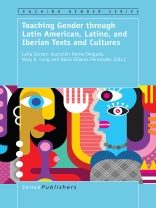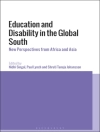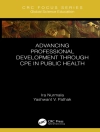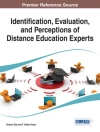Teaching Gender through Latin American, Latino, and Iberian Texts and Cultures provides a dynamic exploration of the subject of teaching gender and feminism through the fundamental corpus encompassing Latin American, Iberian and Latino authors and cultures from the Middle Ages to the 21st century. The four editors have created a collaborative forum for both experienced and new voices to share multiple theoretical and practical approaches to the topic. The volume is the first to bring so many areas of study and perspectives together and will serve as a tool for reassessing what it means to teach gender in our fields while providing theoretical and concrete examples of pedagogical strategies, case studies relating to in-class experiences, and suggestions for approaching gender issues that readers can experiment with in their own classrooms. The book will engage students and educators around the topic of gender within the fields of Latin American, Latino and Iberian studies, Gender and Women’s studies, Cultural Studies, English, Education, Comparative Literature, Ethnic studies and Language and Culture for Specific Purposes within Higher Education programs. “Teaching Gender through Latin American, Latino, and Iberian Texts and Cultures makes a compelling case for the central role of feminist inquiry in higher education today … Startlingly honest and deeply informed, the essays lead us through classroom experiences in a wide variety of institutional and disciplinary settings. Read together, these essays articulate a vision for twenty-first century feminist pedagogies that embrace a rich diversity of theory, methodology, and modality.” – Lisa Vollendorf, Professor of Spanish and Dean of Humanities and the Arts, San José State University. Author of The Lives of Women: A New History of Inquisitional Spain “What is it like to teach feminism and gender through Latin American, Iberian, and Latino texts? This rich collection of texts … provides a series ofinsightful and exhaustive answers to this question … An essential book for teachers of Latin American, Iberian and Latino/a texts, this volume will also spark new debates among scholars in Gender Studies.” – Mónica Szurmuk, Researcher at the National Scientific and Technical Research Council of Argentina. Author of Mujeres en viaje and co-editor of the Cambridge History of Latin American Women’s Literature
विषयसूची
Acknowledgements; Introduction: Gender Pedagogy through Latin American, Iberian, and Latino Texts––The What, How, and Who; Feminism in the Aftermath in Latin American, Iberian, and Latino Studies; Mobilizing Meanings: Questions for a Pedagogy of Women’s Writing; New Canons, New Readings in the Classroom; Cada Maestrillo Tiene su Librillo: Personal Reflections on Teaching Gender through Medieval Iberian Texts; “The Personal is Political”: Teaching Gender and Nation through Nineteenth-Century Texts; Teaching Hispanic Feminisms: From Academic Consciousness-Raising to Activism; Gendered Matters: Engaging Early Modern Dramaturgas in the Classroom; Shifting the Ground When Reading; How to Read a Masculine Canon: Gender and Indigenismo; Wild Naked Ladies: Shifting Paradigms, Gendered Approaches to María Victoria Menis’s Cámara oscura [Camera Obscura] (2008) and Alberta Carri’s La rabia [Anger] (2008); Breaking the Agreement of Silence, Teaching Uncomfortable Subjects; Interrogating Gendered Mexican Cultural Icons in a “Border” Classroom; Approaches to Teaching Rape in the Spanish Literature Classroom: Alicia Giménez Bartlett’s Ritos de Muerte; Interdisciplinary and Crossroads; Teaching Gender for the Multicultural Workplace; Performing Gender in the Classroom and on the Stage; About the Contributors; About the Editors.












